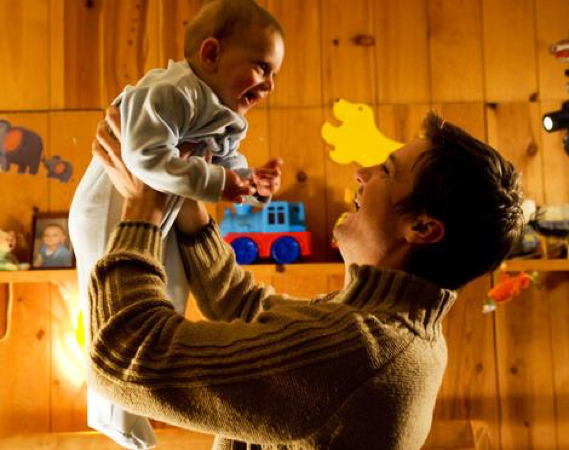"A Different Kind of War Film: The Ethos of the Individual Soldier in The Hurt Locker"
|
Mikal LambdinMikal has a BA in English with a concentration in Writing and Rhetoric from George Mason University. She most recently worked as an Undergraduate Research Assistant for Writing Across the Curriculum, where she wrote research-driven blog posts about composition from a student perspective. She enjoys pushing the envelope when writing by creating her own rhetorical frames and finding connections between dissimilar topics like children’s literature and politics. Mikal lives in Arlington, Virginia, with her doctor-to-be husband and hyperactive cat. Contents"I Don't Know": Leaving Things Out "I Don't Know": Leaving Things Out Cont. "I Wanna Die Comfortable": War is a Game "I Wanna Die Comfortable": War is a Game Cont. "With Me I Think It's One": Man Over Machine |
"With Me I Think It's One": Man Over Machine, Cont.James’s most compelling moment of vulnerability comes at the very end of the film, after he has returned home to his family. In this scene, he entertains his young son with a jack-in-a-box, and finally confronts the truth: JAMES. You love playing with that. You love playing with all your stuffed animals. You love your Mommy, your Daddy, your nature pajamas. You love everything, don't you? Yeah. But you know what, buddy? As you get older, some of the things you love might not seem so special anymore, you know. Like your jack-in-a-box. Maybe you realize it’s just a piece of tin and a stuffed animal. And the older you get, the fewer things you really love. And by the time you get to my age, maybe it’s only one or two things… With me, I think it’s one. The poignant vulnerability that James displays is both unexpected and arresting, and it sends a clear message: this scene is different from the others. In the moments before his final speech, he happily bounces his infant son on the bed, and when the jack-in-a-box pops open, James beams at his son’s amusement. 
He is no longer the hardened war addict, willing to abandon his family for the thrill of combat. For just this moment, he is a loving and gentle father who is contented to sit in a nursery and play games with his son. His peaceful joy continues as he begins to speak, chronicling the many things his son so freely loves. There is almost a hint of envy in his voice as he chuckles, “You love everything, don’t you?” This is where his tone changes, and while the next few lines are not so lighthearted, they hold utter honesty. James begins to grow thoughtful, and suddenly becomes strikingly grave as he reveals the following truth: “And the older you get, the fewer things you really love.” When the startled child meets him with a worried look, his voice softens, this last, honest confession a perfect paradox of acceptance and remorse: “With me, I think it’s one.”  Here, at the very close of the film, James lets the curtain fall ever so slightly, allowing the audience to see what hides behind it. In the safety of his son’s nursery, he faces the truth, openly acknowledging his addiction for the first time. His blissfully ignorant child seems to inspire this honesty – James does not have to make excuses, manipulate, or explain anything away. He does not take pride in his addiction, neither does he make any promises to change. He simply offers the truth: there is only one thing he truly loves. Yet, through the very act of making this honest confession, James reveals that it is not fully accurate. The joy on his face as he plays with his son is real, as is the pain that follows. Contrary to what he says, James does love his son. Perhaps he just doesn’t love him enough. This scene works in two key ways to establish James’s ethos as human. 90 percent of the time, James is aloof, brave, and reckless, yet it is essential that he be more than this. He is also a father who loves his son, if imperfectly. He knows how to put a baby to sleep. He feels simple joys. He feels remorse. He even recognizes his addiction to war, as well as the hurt that it inflicts on others. Along with brains and brawn, James has a heart, and this scene proves it. Yet, simply having a heart does not redeem him. As poignant as this moment may be, James does not suddenly become a changed man. There is no dramatic character growth or happily ever after. At the end of it all, he is seen stalking through Iraq’s dusty streets, encased in a bomb suit, at the start of another 365-day rotation. James’s unredemptive vulnerability is a powerful aide to his ethos as a human being who cannot be categorized as good or bad. Like any other human being, he is both and neither, all at once. |